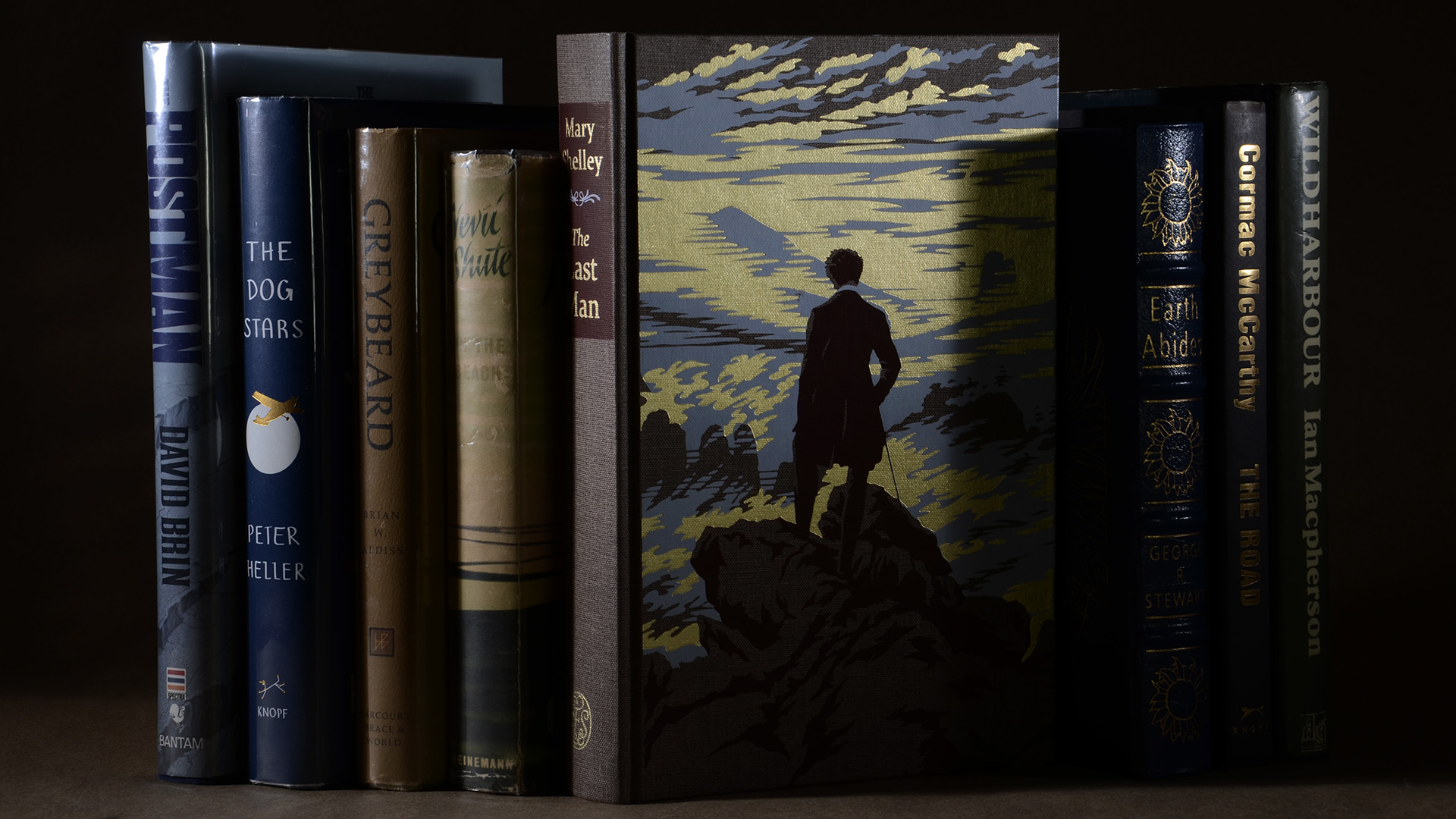The Last Man

Published in 1826, Mary Shelley’s The Last Man is post-apocalyptic science fiction’s ground zero.
It’s also a Gothic adventure novel, which means plenty of references to Greek mythology, classical poetry, ancient history and philosophy, let alone the author’s apparent resolve never to use one word where ten would do as well. Whether you find this kind of thing irritating or luxurious is a matter of taste.
Last Man’s only science-fictional elements are global catastrophe and a nominally futuristic setting (2096), the sole distinguishing characteristic of which is long-distance travel by hot air balloon. Disappointing? A little. Grandiloquent commentary, on the other hand, is super-abundant in narrator Lionel Verney’s depiction of a global pandemic that emerges during the latter years of his journey from juvenile delinquent to privileged intellectual.
Yet Shelley’s influence on everyone from George R. Stewart to Cormac McCarthy is undeniable. False prophets and abandoned cities, God’s seeming indifference to the flower of His creation, the sudden rearrangement of social strata as government, commerce and industry collapse, the quick descent of some into barbarism and the refusal of others to alter domestic routine … all themes that later authors would mine ad infinitum. Even Walker Percy’s Love In the Ruins is foreshadowed here.
Shelley’s plague, however, like the nuclear holocaust and alien invasion devices that followed, is just a means to a message and the message, in her case, is this: We’re all we have. All. As individuals and as a species. And with apologies to Erik Klinenberg, solitude sucks.
Excerpts from the 2012 Folio Society edition
Our name was written ‘a little lower than the angels’; and, behold, we were no better than ephemera. We had called ourselves the ‘paragon of animals’, and, lo! We were a ‘quintessence of dust’. – p. 363
Now that the race of man had lost in fact all distinction of rank, this pride was doubly fatuitous; now that we felt a kindred, fraternal nature with all who bore the stamp of humanity, this angry reminiscence of times for ever gone, was worse than foolish – p. 265
How unwise had the wanderers been, who … entangled themselves in the web of society, and entered on what men of the world call ‘life’ – that labyrinth of evil, that scheme of mutual torture. – p. 198
Nature, our mother, and our friend, had turned on us a brow of menace. She shewed us plainly, that, though she permitted us to assign her laws and subdue her apparent powers, yet, if she put forth but a finger, we must quake. She could take our globe … and cast it into space, where life would be drunk up, and man and all his efforts for ever annihilated. – p. 211
Farewell to the glory and heraldry of England! I turned from such vanity with a slight feeling of wonder, at how mankind could have ever been interested in such things. – p. 325